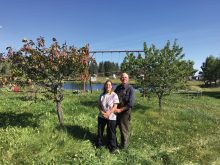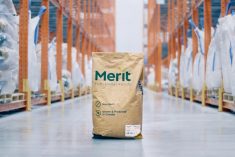The federal government will commit $250,000 towards a review process of the Canadian Organic Standards, a procedure that must be conducted every five years.
The sector had stepped up its call for funding in recent months, noting that without resources to fund the required update the Standards is at risk of being withdrawn under the Standards Council of Canada.
Federal Minister of Agriculture and Agri-Food Lawrence MacAuley announced the funding Jan. 26 acknowledging the Canadian organic industry is one of Canada’s fastest-growing agricultural sectors, with more than $5.4 billion in retail sales in 2017.
Read Also

Mazergroup’s Bob Mazer dies
Mazergroup’s Bob Mazer, who helped grow his family’s company into a string of farm equipment dealerships and the main dealer for New Holland machinery in Saskatchewan and Manitoba, died July 6 from cancer.
Growing the Canadian organic sector will contribute to the government’s goal of reaching $75 billion in annual agri-food exports by 2025, he said.
“Canadian organic farmers and food processors are producing a quality product that consumers in Canada and around the world demand,” he said.
The current review of the Standards must be complete by 2020.
The push for this funding support came from key players in the organic sector including Canadian Organic Growers (COG), the Organic Federation of Canada (OFC), the Canadian Organic Trade Association (COTA) and others.
There was an outpouring of support for this, said a spokesperson for the COG, noting it came both from national and provincial groups within the organic community and numerous commodity organizations beyond the sector.
All want to see this sector remain competitive both domestically and abroad, said Rochelle Eisen, COG president.
Jim Robbins, president of the Organic Federation of Canada, whose mandate is the maintenance and interpretation of the Canadian Organic Standards, as well as management of scientific research in organic agriculture in Canada, said both domestic consumers and foreign buyers must be assured organic practices are both ecologically sound and consistent with current scientific knowledge.
“The rapidly growing Canadian organic industry depends on a sound Canadian Organic Standard,” he said.
The Canadian Organic Trade Association is applauding the move and the partnership with Agriculture and Agri-Food Canada it represents.
“We take our responsibility for providing a growing portion of food seriously and see the need for taking an increasingly active role within agriculture in Canada,” said Dag Falck, president of COTA board.
The review process is estimated to cost approximately $550,000. The organic industry will be exploring various options with government to obtain the funds to pay the remaining amount.
The Organic Standards were created and became regulated by the federal government in 2009 as international trade increased for organic products in the early 2000s.
At the time, major international trading partners said Canadian products would be banned from their countries if an organic regulation were not put in place.
The Jan. 26 federal funding announcement also includes an additional $72,500 for the COG to put toward development of a user-friendly guide to the Canadian Organic Standards.
As well, COTA has received an additional $95,114 through the AgriMarketing Program, towards its international market development strategy.


















